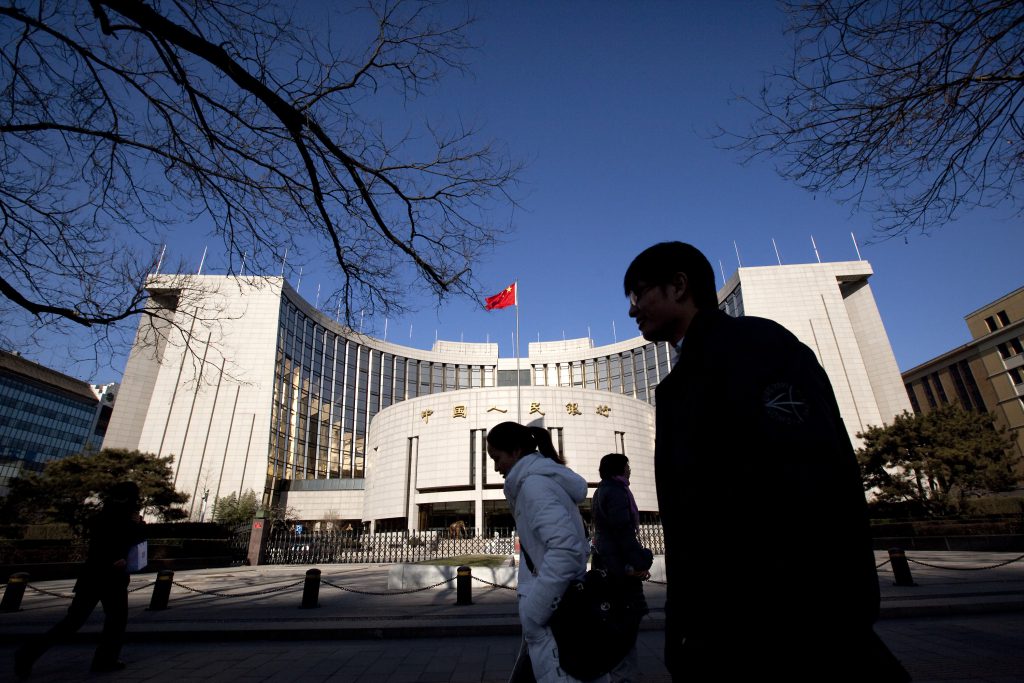Chinese authorities will use Hong Kong and Macau as a testing ground for the use of the digital RMB as a tool to control money flows out of the country, with the introduction of the digital currency to have a serious impact on the local gaming industry, according to analysts consulted by Macau News Agency.
Yesterday Chief Executive Ho Iat Seng expressed at the Legislative Assembly (AL) that the development of digital currency had become a global trend, with authorities to study possible changes to local financial regulations that could allow for the use of the digital RMB currently on trial by Chinese authorities.
Ho also underlined that local authorities are in communication with the People’s Bank of China to study the feasibility of issuing digital currencies in due course.
“We started hearing the chatter about the digital RMB become louder and louder since by the middle of last year with Macau the only place where there was a void. It didn’t make a lot of sense, and it either meant [local authorities] were studying the RMB and were very quiet about it or they had no idea what was planned,” gaming analyst, Ben Lee, told MNA.

For the managing partner of IGamiX Management & Consulting, it is inevitable that the digital yuan will arrive in Macau “sooner than most people expect”, with it its impact on the gaming industry to be considerable.
Mainland authorities have started to conduct research in the introduction of a centralised digital currency in the past four years, with pilot tests carried in many cities, including Beijing, Shenzhen and Suzhou since 2020.
Just this month a PBOC official also revealed that joint works were on-going with the Hong Kong Monetary Authority (HKMA) on the technical testing of using the digital yuan for cross-border payments on the Chinese mainland and Hong Kong, with similar partnerships set with the central banks of Thailand and the United Arab Emirates.
Befoe the admission by the CE at the Legislative Assembly of intentions to advance in this direction, the Monetary Authority of Macao (AMCM) had noted that they were paying attention to the development of centralized digital currencies in various jurisdictions worldwide, with the Covid-19 pandemic highlighting the “deficiencies of the current cash payment system”.
“Central bank linked digital currencies are equivalent to legal banknotes and coins involves the application of cutting-edge financial technology. Currently, the world central banks are promoting the research work of digital currencies, with China assuming a leadership position in the area of this technology,” the AMCM indicated.
The new currency would allow Chinese policymakers greater visibility into how money flows in and out of the country’s economy, with gaming analysts having previously noted it could impact the volume of VIP gaming volume in the Macau SAR.
“Cross-border deployment of the Digital Yuan is China´s main rationale behind its CBDC, since it will help take some of the USD-denominated exports and convert them into yuan-based exports, thus challenging the global domination of the USD,” Caudevilla noted.
In a previous opinion for MNA, fintech expert Oriol Caudevilla noted that both Hong Kong and Macau are “poised to play a key role when it comes to Digital Yuan´s tests and future roll-out” since unlike the tests conducted thus far in the Mainland which focused on domestic payments, the tests in SARs will focus on cross-border payments.

In a previous gaming sector survey, the Macau Gaming Research Association also considered that the acceleration of the use of the digital yuan as a valid currency in Mainland China could be a potential “game-changer” for Macau by overhauling entire payment systems.
“This means the RMB could become legal tender in Macau. Customers can buy chips instantly using RMB without the need to convert to HKD by then. The need for junkets/agents will be significantly curtailed and casino operators can develop a more direct relationship,” the association states in its 2021 Macau Gaming Service Index report.
Gaming analyst Ben Lee noted that for mainland authorities Macau represents a “hole in the economy” with the gaming industry siphoning large amounts of capital from the country to overseas jurisdictions.
“Macau has been an issue as a leakage for China’s economy. The digital RMB would solve that problem by allowing them to effectively track the transfer of funds from the mainland to Macau,” Lee noted.
“Chinese authorities have tried to control hundreds of thousands, perhaps millions of small transactions, either cash being carried over or channelled through underground channels to Hong Kong and Macau. Once that cash is in Macau in HKD, it is repatriated or taken overseas fairly easily”
The move would not just allow Chinese authorities to support the Macau economy, while at the same time holding a stronger control over what is sent overseas.
“Casinos would have their revenue in RMB but in order to repatriate any funds, they would have to apply to the PBOC to convert them into USD or Euros. It removes the need for mainland authorities to monitor all smaller transactions. They would only need to control the larger players, the banks and casinos.
This transition would seriously impact local VIP revenue and force the transition to the main focus on premium and mass-market players, by removing the barriers that prevent mainland players to spend their money in Macau and recur to gaming promoters.
“At the end of the day it will finally open up the mass market to Macau but at the same time the VIP market will contract as it has already,” Lee noted.
An amendment to China’s criminal law enforced on March 1 determining anyone who ‘organises’ mainland Chinese for the purpose of ‘overseas’ gambling will be deemed to have committed a criminal act.
Although analysts have considered that the changes target mainly gaming operations in the Philippines, Cambodia, Myanmar, Laos and Vietnam the wording of the new amendment’s establishes that cope of action to gambling “outside the country (borders)”, leaving the possibility for Macau gambling operations to be covered by it.
Brokerage Morgan Stanley has estimated that while VIP results declined by 3 per cent in the first three months of this year from the previous quarter to about US$628 million, while mass-market revenue has increased by 11 per cent sequentially to some US$2.3 billion as the percentage of the VIP segment in local results continues to decrease.
The widespread use of the RMB could lead to the HKD losing its importance in the SAR as the main tender for gambling in casinos, however, Lee considers the MOP would likely remain in place as the main currency “at least until 2049”.
“The only reason the MOP was pegged to the HKD was to make it easier for Hong Kongers to spend their money in Macau […] Hong Kong has not been our main market for the last 15 years so there’s no longer any reason to maintain the HKD as the default currency. Most of our income is derived from the mainland, ” Lee told MNA.




















